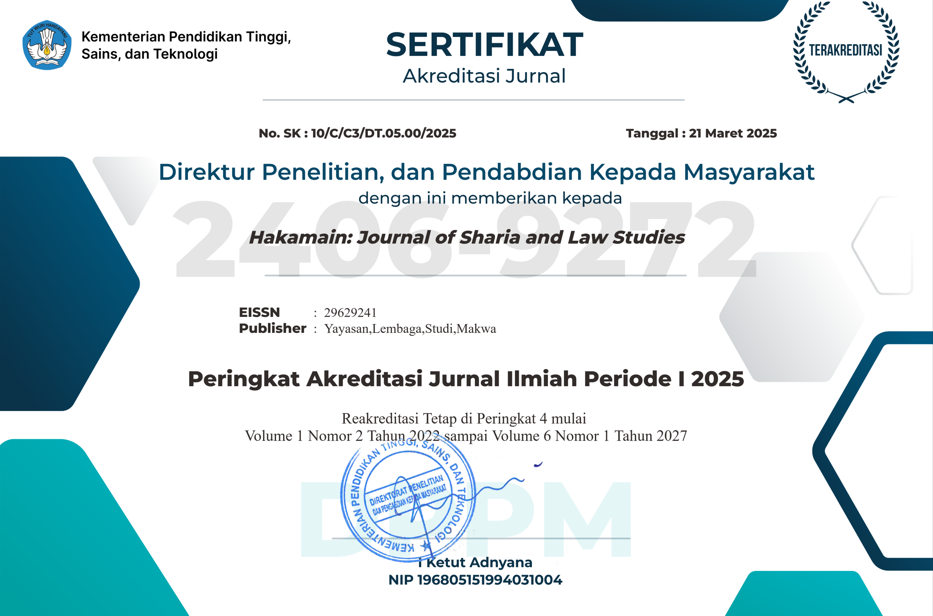Legal Implementation in the Digital Era: Protection of Child Support Rights after Divorce in Indonesia
DOI:
https://doi.org/10.57255/hakamain.v4i1.1317Keywords:
Child Support, Child Protection, Digital EraAbstract
This study aims to examine the implementation of child support rights protection after divorce in Indonesia within the context of the digital era through field research. A qualitative approach was used to gain an in-depth understanding of the practices, challenges, and opportunities in enforcing child support rights. Data were collected through in-depth interviews with various stakeholders, such as religious court judges, lawyers, divorced parents, and officers from child protection agencies in several religious court jurisdictions in Indonesia. The findings reveal a gap between existing legal provisions and their practical implementation. Major obstacles include limited public legal awareness, weak supervision mechanisms, and restricted access to and utilization of digital technology in the determination and monitoring of child support. Nevertheless, several digital innovations have begun to be applied, such as document digitization systems and child support tracking applications that help expedite processes and enhance transparency. This research makes significant contributions in Indonesia by offering contextual understanding and strategic recommendations for strengthening technology-based child support protection. Globally, the findings can serve as a reference for developing countries seeking to integrate family law regulations with digital advancements to improve access and the effectiveness of legal services. These results are expected to promote the development of a more inclusive, responsive, and adaptive child support protection system in the digital era.
Downloads
Published
How to Cite
Issue
Section
Citation Check
License
Copyright (c) 2025 Nurul Fitri Kayati, Syarif Hidayatullah, Jainuddin Jainuddin

This work is licensed under a Creative Commons Attribution-ShareAlike 4.0 International License.






